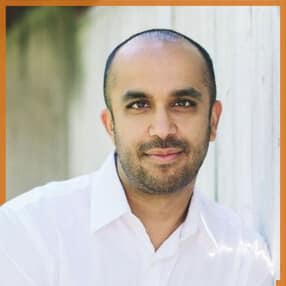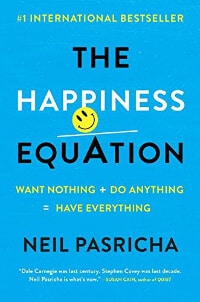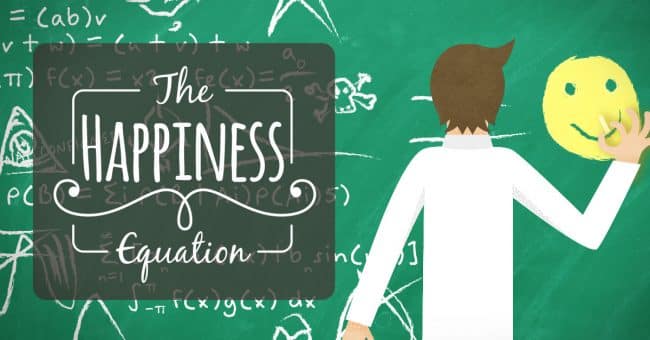 On October 20, 2015, my YouTube channel hit 100,000 subscribers.
On October 20, 2015, my YouTube channel hit 100,000 subscribers.
I was a milestone I’d been dreaming about for a really long time, and I was so excited to finally cross it. In my mind, it was the very definition of the YouTube “big leagues.”
The moment came: I hit the refresh button and saw the count go from 99,99-something to exactly 100k. Do you want to know what I felt in that moment?
I felt the most metal feeling of all time – nothing.
Ok, that’s not entirely true. For about five seconds, I was really excited and had to do a few fist pumps and snap a pic for Instagram. But immediately after that, things went right back to normal. A couple of realizations hit me right about then:
- Hitting a milestone didn’t result in long-lasting happiness. A moment of elation, yes – but only a moment.
- I realized 100,000 wasn’t big at all. And 200,000 wouldn’t be either – no, now the “big leagues” started at 1 million. The goalpost had moved.
The second point brought up a memory from a few months earlier; I was sitting in a session at VidCon, listening to the guys from ASAP Science – a channel with over 4 million subscribers at the time – answer questions. One person asked them if things changed when their channel got big, and their answer surprised me.
It was along the lines of:
“Nope, it doesn’t change anything at all. I remember when we had just started, thinking that it would be totally amazing if we could get 1,000 subscribers. And now, at 4 million, we still look at bigger channels and think, ‘Man, things will be really cool once we can grow that big!”
I had found their answer insightful back then, but having the same feeling come to me really drove the point home. Numbers don’t bring happiness. Milestones don’t bring happiness. External achievements don’t being happiness. The goalpost always moves.
Despite this truth, many people chase all of the above in a quest to become “happy”. Some of us go to school for years so they can take on ultra-high-paying jobs, thinking that will make them happy – even though those jobs make them work 100 hours a week. Others operate with a sort of tunnel vision – they chase milestone after milestone, not realizing at any point along the way that all the previous milestones haven’t made them happy.
Now, there’s absolutely nothing wrong with having ambitious goals. Working towards challenging milestones is a good thing. However, if you want to be happy, it’s equally important to be deliberate about how you spend the time in between the milestones, and how you set your attitude on a day-to-day basis.
That’s what today’s episode is all about. My guest today is someone who definitely spends a lot of time thinking about happiness, even amidst a busy professional life.
His name is Neil Pasricha, and he’s a best-selling author, was previously an executive at Wal-Mart, and graduated from Harvard with an MBA. Neil started thinking seriously about happiness when he started his blog 1000 Awesome Things, and came to the same realizations I did as his blog hit milestone after milestone.
Now, he’s the founder of the Institute for Global Happiness, and has also recently published a second book – The Happiness Equation – which I’ll talk a bit about below.
In this conversation, Neil and I discuss what it takes to be a happy person. We also talk about skill development – including the mindset mistake many people make, which prevents them from branching out and learning new things.
I loved this conversation, and I honestly can’t wait for an excuse to have Neil back on the show. Hopefully you enjoy it as well!
Featured Book
 I wanted to talk with Neil on the show because I read his book The Happiness Equation as part of my 3-month reading challenge – and I loved it.
I wanted to talk with Neil on the show because I read his book The Happiness Equation as part of my 3-month reading challenge – and I loved it.
This book started out as a letter Neil wrote to his unborn son while he was sitting on an airplane; from there, Neil revised and added to it in order to create a book sharing everything he’d learned up until that point about happiness – all the lessons he’d learned while earning an MBA, working in a huge corporation, and rubbing shoulders with tons of ultra-successful people – many of whom weren’t very happy at all.
In the book, Neil lays out nine rules for cultivating happiness in your day-to-day life. Some of the lessons contained in those nine rules really spoke to me, including:
- How happiness is 10% circumstances/events and 90% attitude – and the practices that can help you cultivate a happy attitude
- Why retirement is a broken concept – I especially loved the section about Okinawa, Japan, where they don’t even have a word for retirement!
- The re-written formula for doing new things and learning new skills
This is one of those books that contains many things I’ve already heard at one point or another, but being reminded of them helped me to work on them more deliberately in my own life.
As a result, I really, really liked this book, and I’ve already seen some benefits in my own life from implementing what I learned. Additionally, it’s a quick read!
If you’d like to pick up a copy, you can support College Info Geek by using the link above 🙂
Things mentioned in this episode:
- The Productivity Project by Chris Bailey
- The Best Thing You Can Do for Your Productivity (with Chris Bailey)
- The Worst Thing You Can Do for Your Productivity (with Chris Bailey)
- Neil Pasricha: The 3 A’s of Awesome
- The Book of Awesome by Neil Pasricha
- The Book of (Even More) Awesome by Neil Pasricha
- The Book of (Holiday) Awesome by Neil Pasricha
- Awesome Is Everywhere by Neil Pasricha
- The Journal of Awesome by Neil Pasricha
- Stumbling on Happiness by Daniel Gilbert
- The Black Swan by Nassim Taleb
- 1000awesomethings.com
- Surely You’re Joking, Mr. Feynman! by Richard Feynman
- Derek Sivers: No more yes. It’s either HELL YEAH! or no.
- Essentialism: The Disciplined Pursuit of Less by Greg McKeown
- Paul Graham: Maker’s Schedule, Manager’s Schedule
- Hacker News
- Y Combinator
- Hacker News: Best Books You Read in 2012
- Harry Potter and the Methods of Rationality by Eliezer Yudkowsky
- Eliezer Yudkowsky: An Intuitive Explanation of Bayes’ Theorem
- Headspace
- The Guardian: Top Five Regrets of the Dying
- [email protected]
- Neil on Twitter
- The Institute for Global Happiness
Want more cool stuff? You can find all sorts of great tools at my Resources page.
If you enjoyed this episode, subscribe to the podcast on iTunes! It’s easy, you’ll get new episodes automatically, and it also helps the show gain exposure 🙂 You can also leave a review!
Here’s an image for sharing this episode on social media:



